Divergent Trails: Prasanna Vithanage's Paradise
Prasanna Vithanage’s Paradise (2023) opens with the looming sense of a disconnect. We hear shouts and wailing police sirens as we read text about the nation-wide protests that erupted in Sri Lanka in early 2022, following shortages of essentials such as food and fuel. However, as the film’s title appears on the screen, the shouts of dissent are drowned out by the controlled music of a tourism advertisement, almost in defiance of what we have just read and heard—presaging the move made by many tourists who travelled to Sri Lanka during this time. This disjunction in the film’s opening seconds, even before we have been shown its first frame, will slowly intensify and permeate the film.
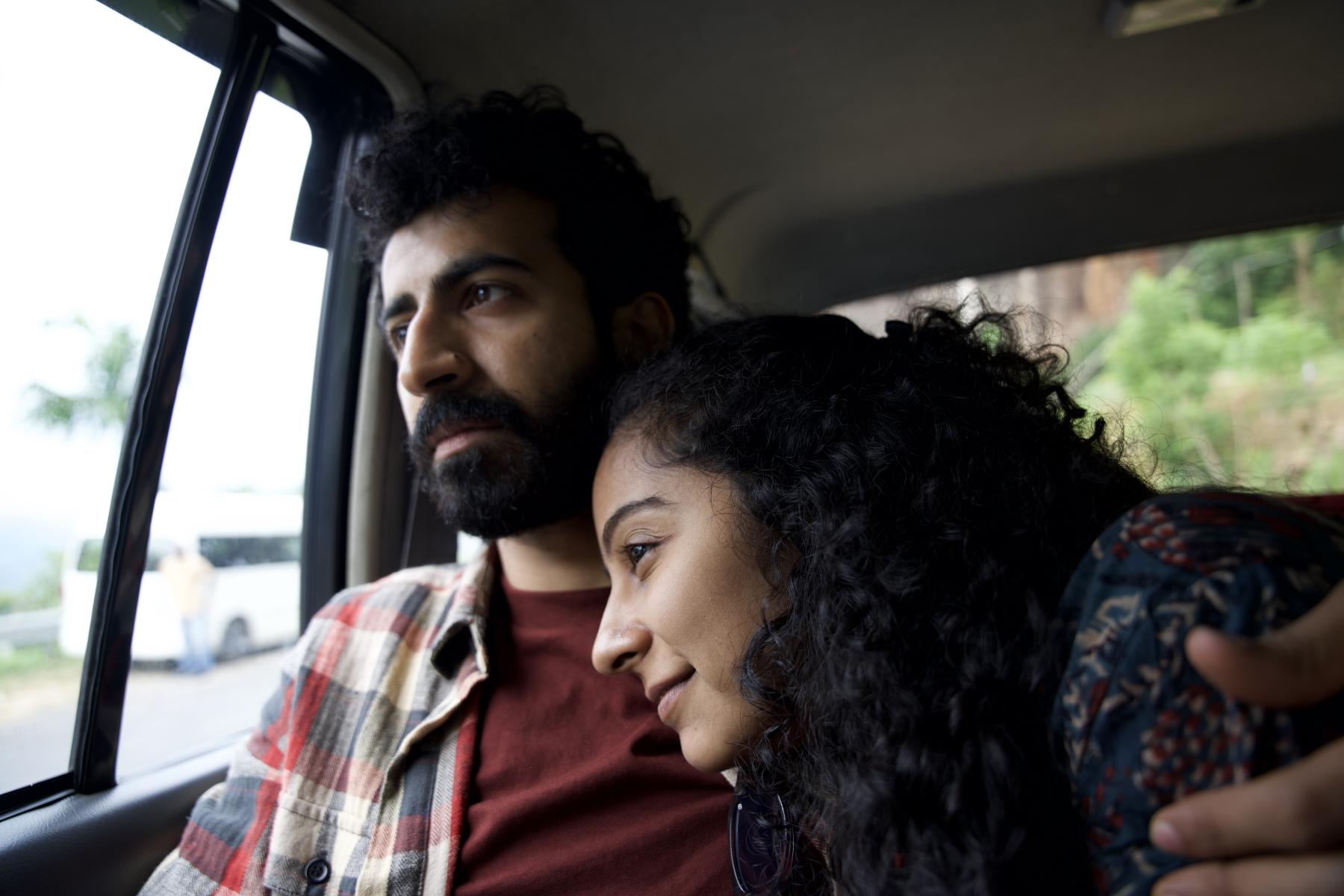
The very first image of the film is a carefully packaged view of Sri Lanka from the tourism commercial whose strains we just heard. It plays on a tablet held by Keshav (Roshan Mathew), an Indian tourist who has just arrived in the island country with his wife Amritha (Darshana Rajendran) to partake in a Ramayana tour as a way of commemorating their fifth wedding anniversary. And yet, as we watch his screen within our own screens, we see how the frame within the frame spatially limits the image. We are not being given the whole picture, either in dimensions or in substance. The restrictiveness of that image bound by frames points thematically to an inadequacy in the way it serves up a sanitised and romanticised view of the country, far removed from its present reality. Moreover, the fact that Keshav, while sitting in a vehicle that is making its way through the streets of Sri Lanka, chooses to look at the video on his device rather than the country outside his car window, points to his own limited outlook.
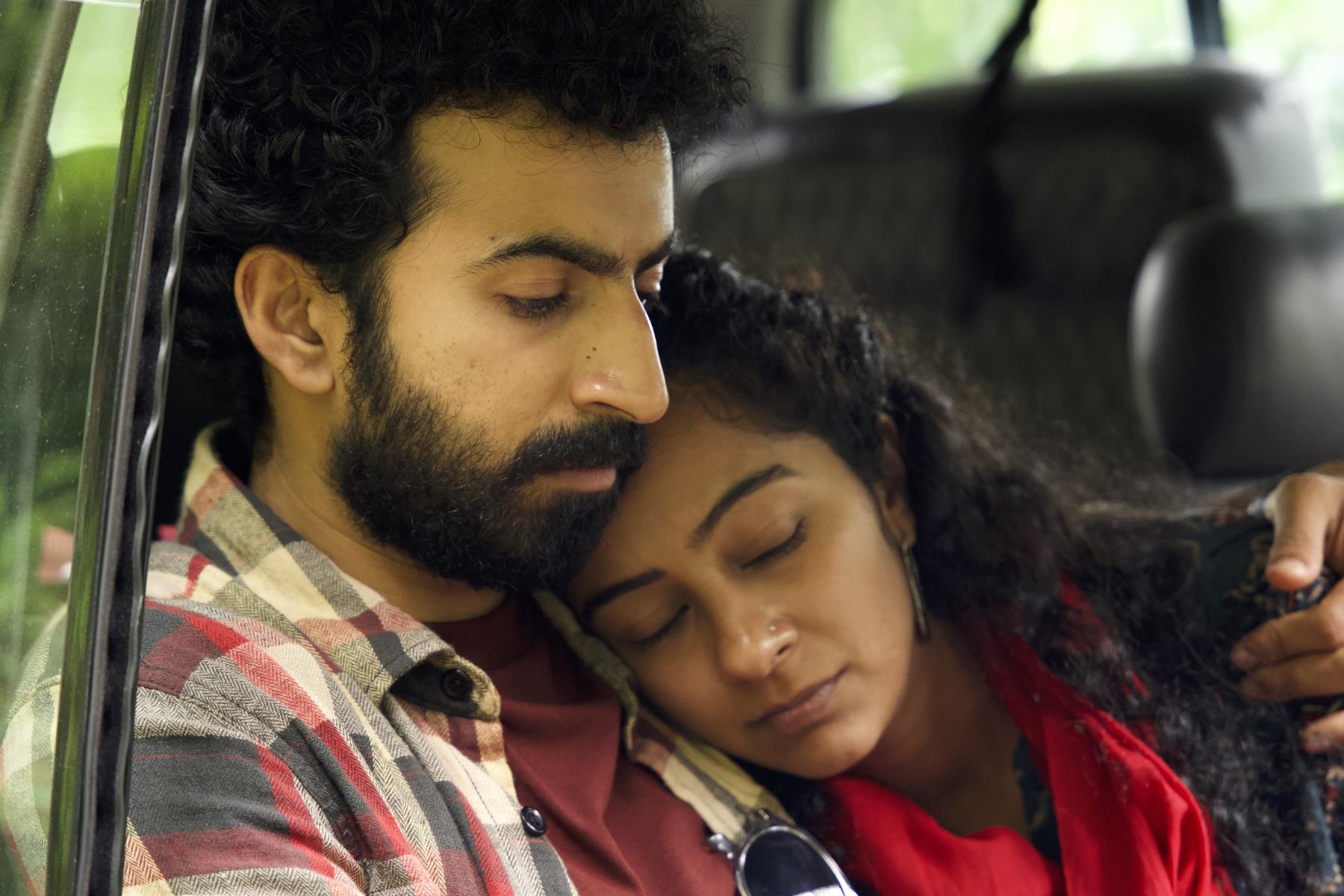
These scenes inside the car are crucial. On the one hand, they instantly establish Keshav’s affinity with his devices. If their sudden absence a little later in the film will lay bare his arrogance and apathy, these technological attachments seemingly serve to simply camouflage and placate those tendencies for the time being. At one point, when the car the couple is travelling in is stopped by protesters, it is significant that we see the crowd not up close but at a distance through the windscreen. As their Sri Lankan guide Andrew (Shyam Fernando) steps outside to speak to the demonstrators, we stay with the couple, safe in the bubble of the car, protected from and indifferent to the inconveniences outside. Moreover, Keshav is an up-and-coming producer whose potentially lucrative project gets green-lit in these early scenes in the film, and we see him excitedly connecting with his teammates in India. His phone ironically serves to disconnect him even further as he remains preoccupied throughout, in conversations that are wholly removed from the reality that surrounds him. But technology also separates Keshav from the Sri Lanka that he has supposedly come to see. His phone offers a series of interruptions as Andrew takes the couple on a Ramayana trail, relaying a sense of modernity repeatedly clashing with history and mythology.
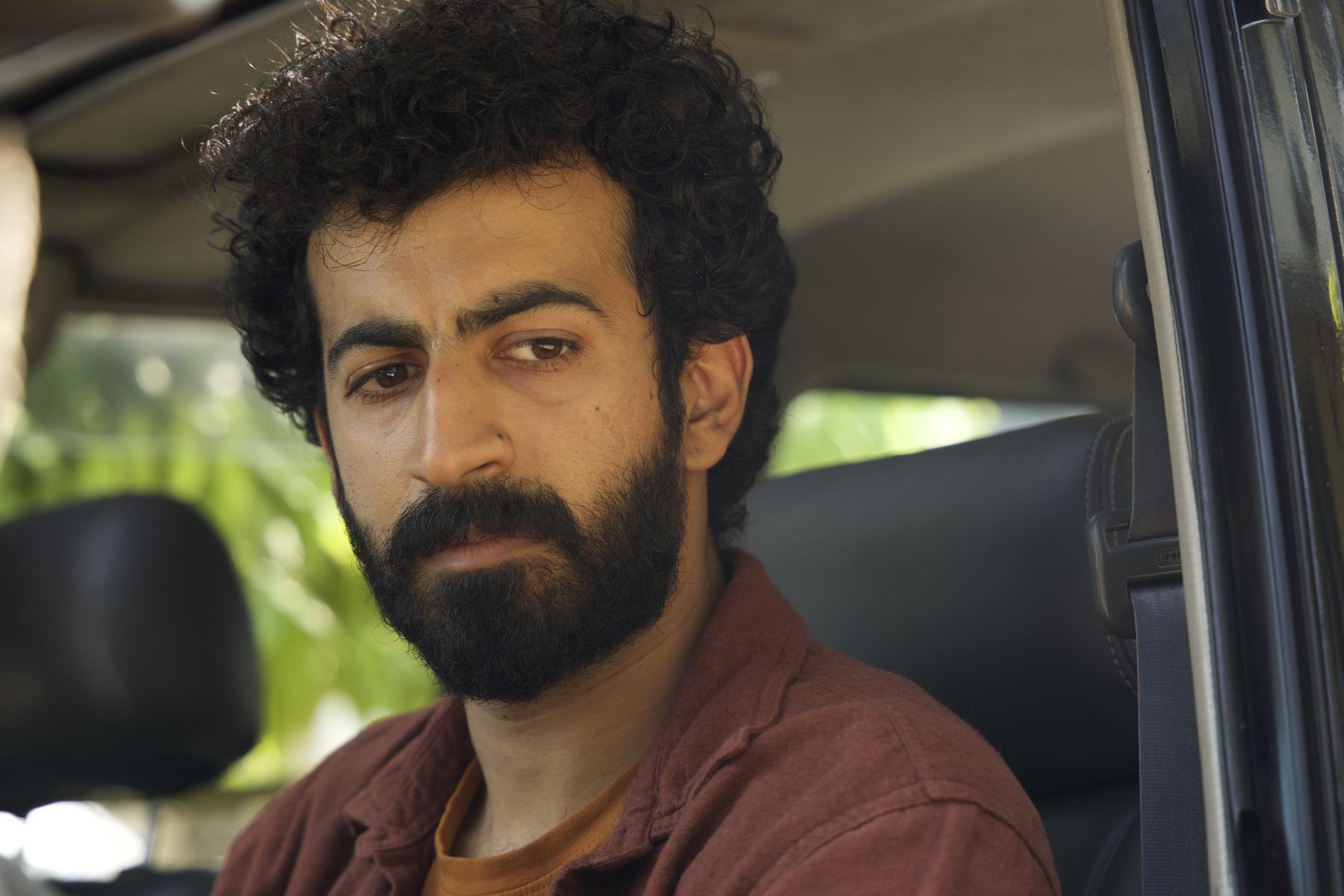
Contrasted with Keshav’s blinkered stance is the curious gaze Amritha directs upon the country outside the confines of their tourist vehicle. It is she who opens one of its windows to speak to local children selling fruit, she who is entranced by the beauty of a sambar deer they spot near their guest house. Amritha is the one who first wonders about the privileges accorded to the tourist in Sri Lanka, who empathises with a seriously injured Tamil estate worker accused of having stolen their devices; it is, she who, towards the end of the film, asks in desperation when no one else will: “Aren’t we responsible for his death?”
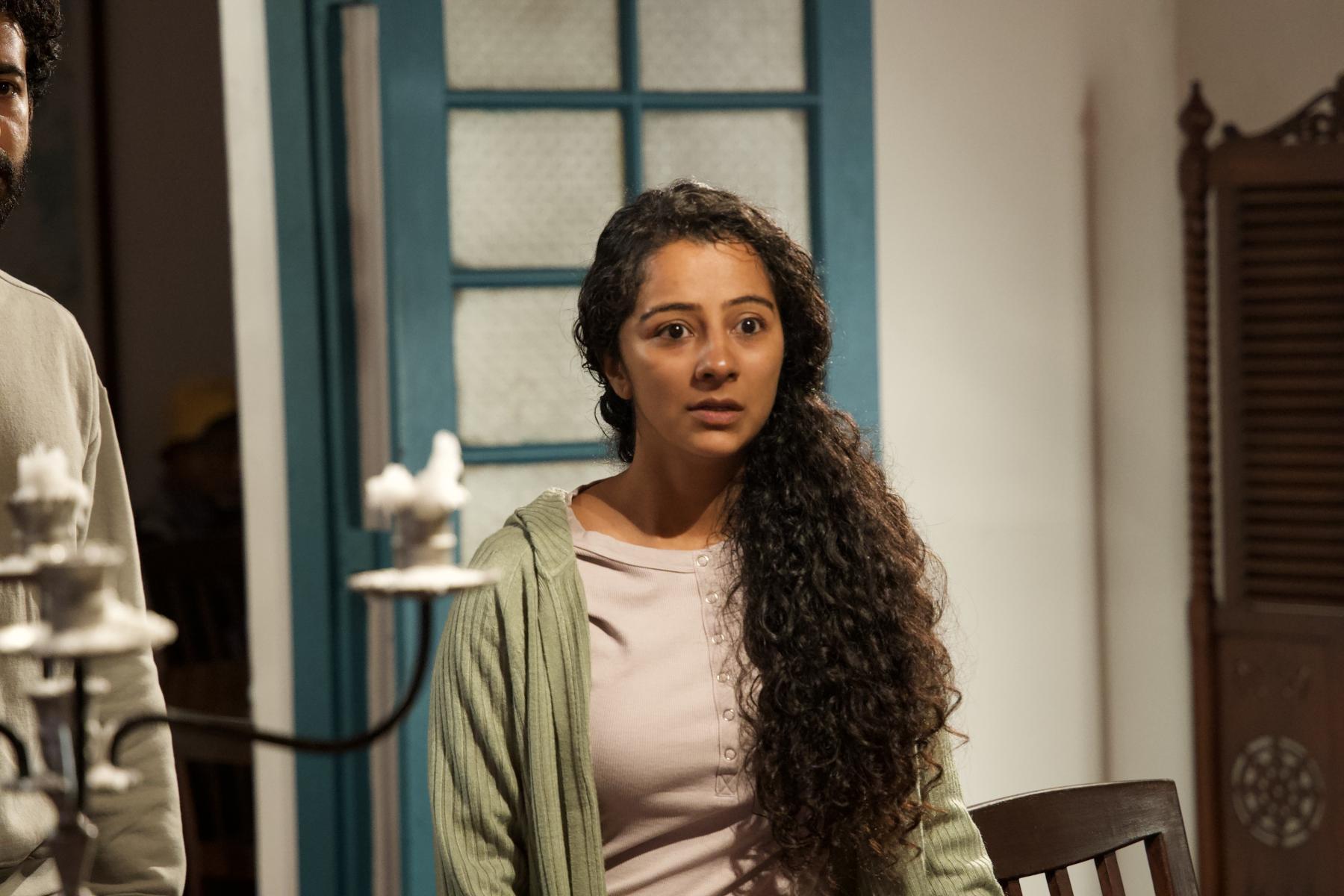
The narrative thread that grows out of the break-in at the guest house where Keshav and Amritha are staying comes to embody the long-standing ethnic friction between the majority Sinhalese and the minority Tamils (descendants of Tamil estate workers who were forcibly brought from India by the British) in Sri Lanka. Three Tamil boys, their guilt unfounded, are made into scapegoats by the local police, who, faced with limited resources and Keshav’s threats of embassy involvement, find in them easy targets. Keshav (“I don’t care about these people”) may not be entirely convinced of the men’s culpability, but plays along hoping that action, even if misplaced, will yield results. Amritha, although unsure, finds herself unable to stop things from escalating. When one of the men ends up dead after a violent encounter with the police, she traces the blame back to Keshav and herself. Unwittingly and carelessly, they have enabled one national crisis (economic) to stoke another (ethnic).
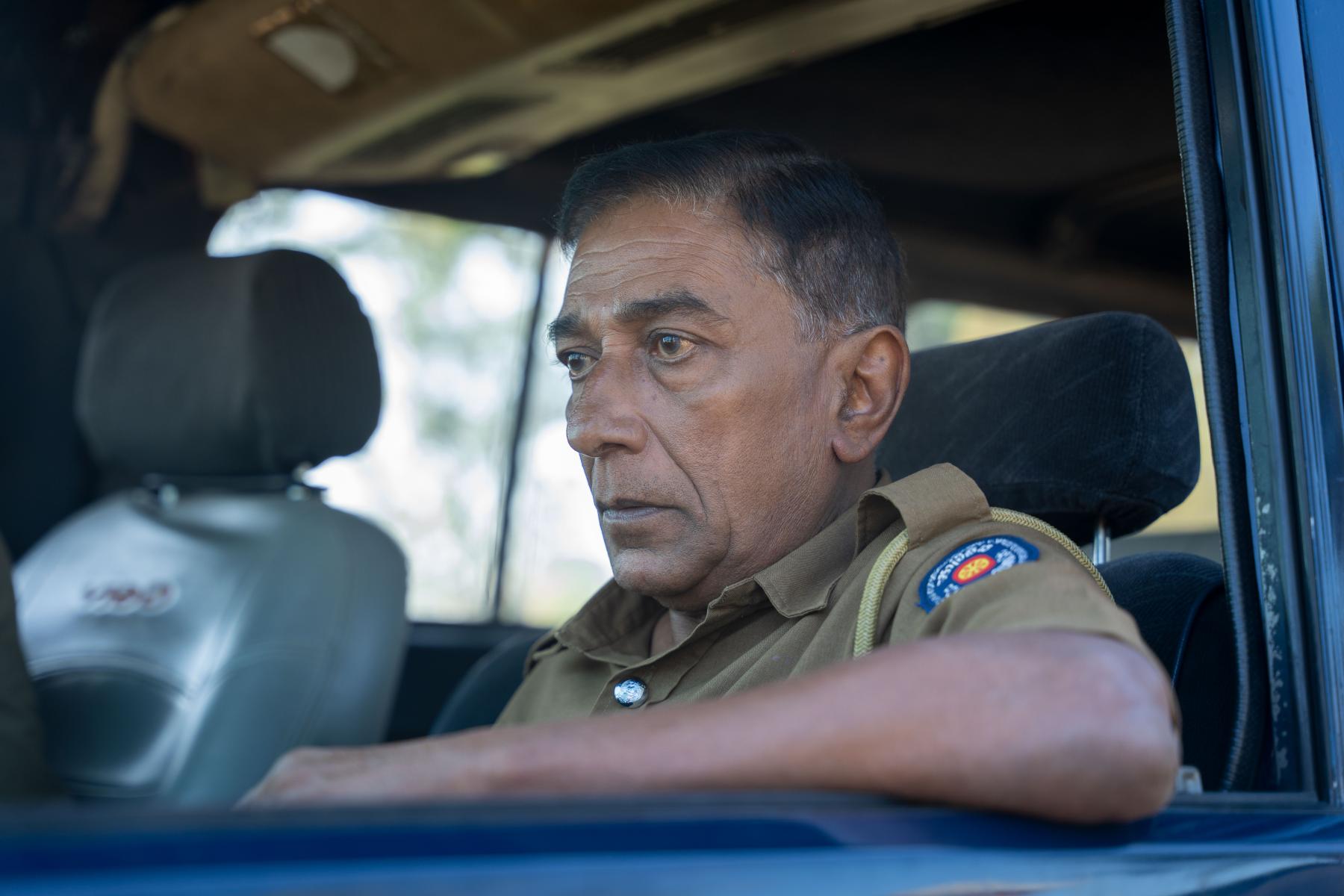
The car also becomes the site for the brewing tensions between the couple. For instance, once the conflict between husband and wife arises, we don’t see them sitting next to each other in the car. Their physical distance is reflective of both the coldness that has set in and also a visual indicator of the fact that they are no longer on the same side of the matter. Amritha’s emotional and moral remove from both Keshav and local inspector Sergeant Bandara (Mahendra Perera), who—like her husband—refuses to feel remorse for the dead boy, is most apparent when she is seated in the front seat of the car. As Amritha and Andrew take in the sight of the sambar deer which has made an unexpected appearance before them, while, infuriatingly for her, the virtues of venison—for the second time in the film—are discussed in the back seat.
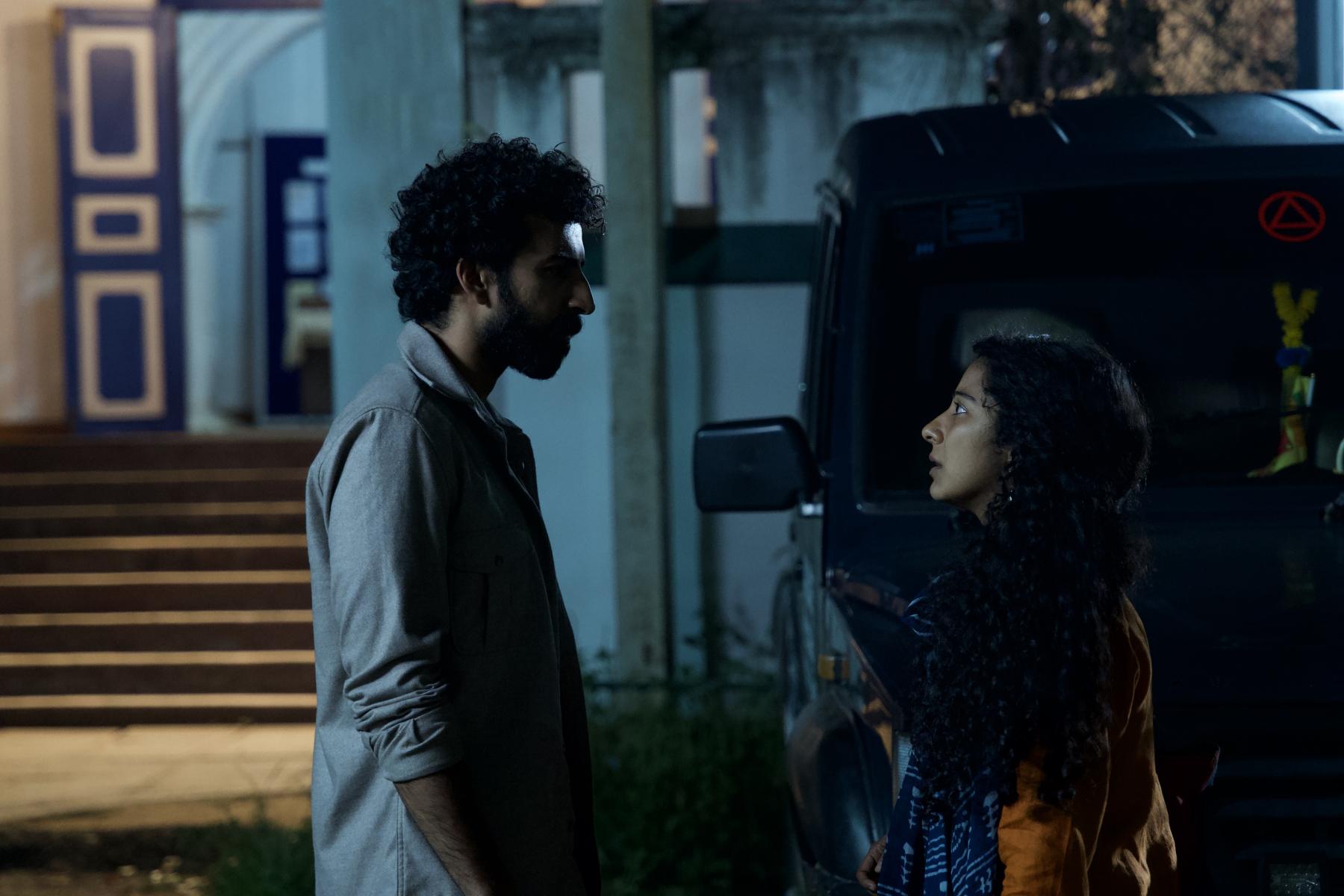
In the final moments of the film, we see her for the last time in the car, presumably making her way to the airport to return to India. It is a short yet significant scene. The car’s passage by the Seetha Amman Temple is reminiscent of their earlier visit to this purported site of Sita’s exile, when Amritha had spoken of Sita’s more active role in the Jain Ramayana. The robbery the couple experiences on their first night in Sri Lanka sows the seeds of an emotional and eventual physical separation between them: while Keshav becomes increasingly brazen and thoughtless, Amritha finds clarity and her voice. Ultimately, evoking the mythical heroine of the Jain Ramayana, she too takes matters into her own hands and fights ‘Ravana’. The film’s closing moments then signal her, albeit tearful, return from exile.

The sense of disconnect that works its way into Paradise through characters and themes perhaps finds its sharpest delineation in the manner in which the same thing in the film comes to hold radically different meanings for different groups of people. Diesel, for instance, which is ultimately responsible for the Tamil boy’s death as the hospital’s generators run out of it during a power cut, is simultaneously being readily provided to outsiders to tour the country. Sri Lanka itself—this famed ‘paradise’—most blatantly encompasses this irony as one group’s ‘burning’ homeland becomes another’s idea of a cheap vacation.
To learn more about the protests in Sri Lanka that frame the background of the film, read Pramodha Weerasekera’s conversations with Tashiya de Mel and Tavish Gunasena.
All images are stills from Paradise (2023) by Prasanna Vithanage. Images courtesy of the director.




